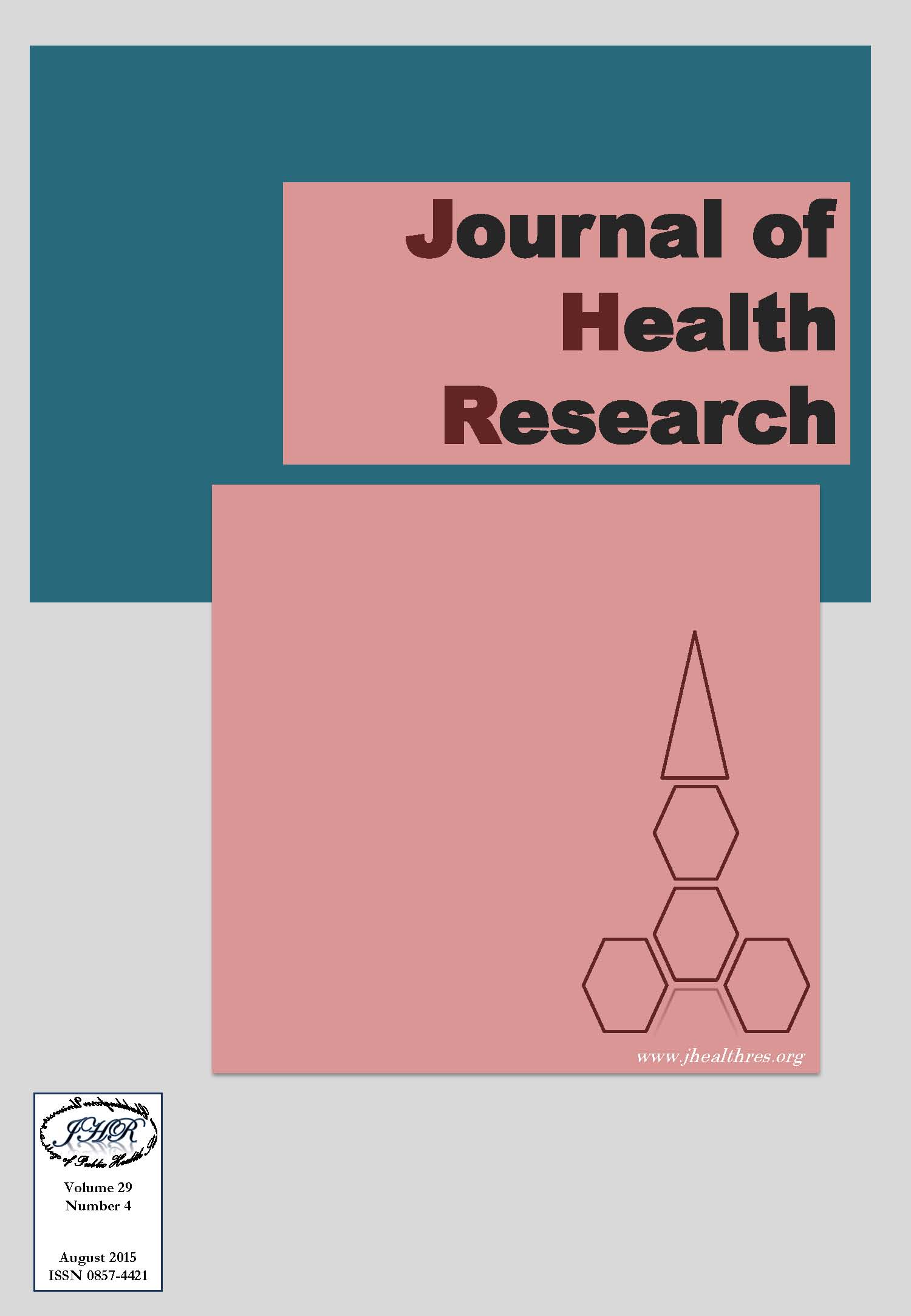Validation of Behavioral Regulation in Exercise Questionnaire-2 (BREQ-2) and Dietary Self-Regulation (DSR) in Overweight High School Students in Thailand
Keywords:
Scale validation, Dietary self-regulation, Behavioral regulation in exercise questionnaire, Overweight, High school students, ThailandAbstract
Background: This study aimed to validate the Behavioral Regulation in Exercise Questionnaire-2 (BREQ-2) and Dietary Self-Regulation (DSR) in overweight high school students in Thailand.
Methods: The original (English) versions of the BREQ-2 and DSR scale were translated into Thai using a forward- and back-translation method. Four hundred twenty-nine overweight high school students in four public secondary schools in Nan Province, Thailand, completed the Thai version of the questionnaires (97.5% of participants returned questionnaires). Their mean age was 15.7±1.7 years old. Data analyses were performed using Cronbach’s alpha coefficients, intra-class Correlation Coefficients (ICC), and a confirmatory factor analysis via structural equation modeling.
Results: The confirmatory factor analysis revealed that the factor structures of 5 subscales for the Thai- translated BREQ-2 and 3 subscales for the Thai-translated DSR replicated the original version. The Cronbach’s alpha reliability coefficients of the BREQ-2 subscales ranged between .35 and .83 while those of the DSR subscales ranged between .63 and .81. Test–retest reliabilities for the two scales demonstrated a moderate extent (ICC = .04 to .50 for the BREQ-2; ICC = .15 to .45 for the DSR).
Conclusions: Although the original versions of the BREQ-2 and DSR scale were developed for use with the adult population, the Thai versions of these instruments are also generally appropriate for use with obese Thai high school students.







